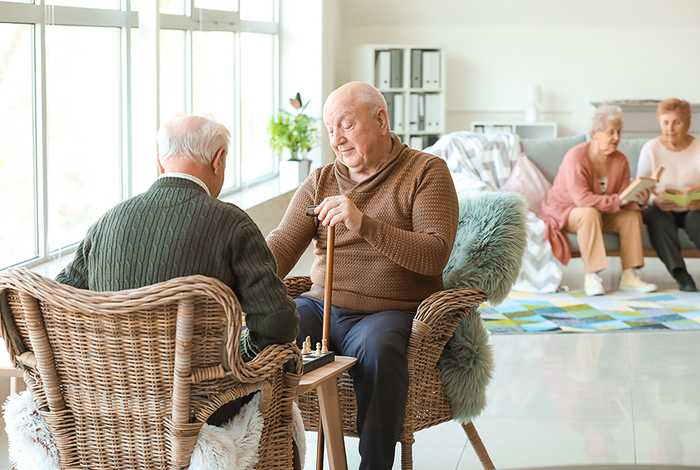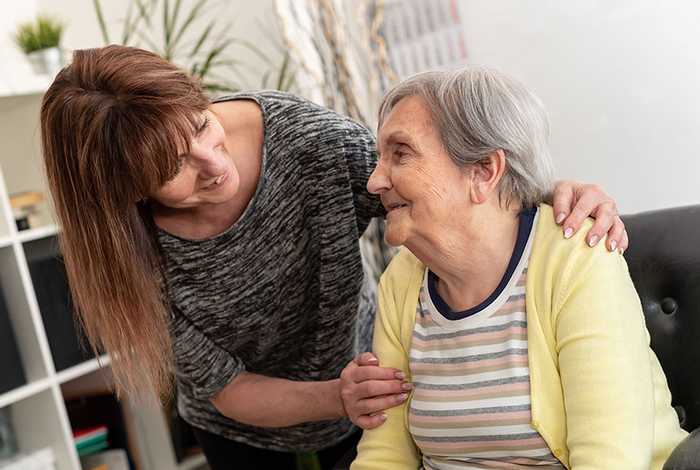Posted by Rob King
How to stay independent and live at home for longer
After a lifetime of looking after yourself, it’s often hard to accept you may need help
When you’re used to being in control, it is difficult to recognise you may need a helping hand to remain independent. Many of us have fears and concerns about growing older and relying on others. Admitting that you need help may raise concerns about what will happen in the future.
Falls are the largest cause of hospital admissions for older people and they’re a major cause of people moving from their own home to long-term nursing or residential care...
If you are worried about staying in control, there are solutions that can help you to remain independent in your own home for longer.
You may not be as steady on your feet as you once were, or find steps at home more difficult. Falls are the largest cause of hospital admissions for older people and they’re a major cause of people moving from their own home to long-term nursing or residential care; 30% of over 65s will fall once a year and for those over 80, as many as 50% will suffer a fall.
Lack of confidence
A fall can have a negative impact on a person’s confidence and wellbeing. Ensuring good lighting and removing trip hazards such as fraying carpets is a good start. Improve muscle strength through basic exercises to help maintain balance. Keep a check on your eyesight and make sure you are wearing the right glasses.
A safe home assessment
Changes to the home environment can make you feel safer and more secure. A ‘safe home assessment’ from a trained assessor will identify any general risks or hazards to health, safety and security. The assessment will recommend home adaptations, specialist equipment and services that will ensure the home is safe and suitable, and that care and support needs are met.
Personal Alarm
Whilst you can take steps to ensure the home is safe, accidents and emergencies can still happen. Knowing that you can get help if you are alone is reassuring for everyone. A personal alarm can be worn as a pendant or around the wrist and quickly connects the wearer to an emergency response centre when the alarm button is pressed. A personal alarm can literally be life-saving because the emergency response centre will quickly call family members or the emergency services if further assistance is needed.
A personal alarm service can be personalised depending on the level of support required or as circumstances change. Home sensors can alert the emergency response centre if there is a rapid change in temperature, smoke or if water is detected on the floor, providing peace of mind if your loved ones sometimes forget to turn off a tap or kitchen appliance. GPS personal alarms can work outside the home and garden and can be particularly valuable for people living with dementia because the emergency response centre can identify the wearer’s location. A fall detector will automatically detect a stumble or fall and alert the emergency response centre.
Personal alarm checks
A personal alarm doesn’t require any specialist equipment to be installed and you can set it up yourself. When considering a personal alarm service, it is important you feel confident you and your family will receive the support you deserve:
- Check that the personal alarm service is monitored 24 hours day, 7 days a week so help will be available any time of the day or night.
- Ask what the typical alarm response rates are. A personal alarm provider should be able to share this with you.
- Are the prices clear? A personal alarm service will require a subscription to cover the monitoring but check there are no hidden costs, cancellation charges or fixed term contracts.
- Check for customer reviews and testimonials.
- Is the personal alarm provider a member of the Telecare Services Association and do they have any other accreditations?
Home adaptations and personal alarms provide peace of mind and independence for many older adults that do not need the level of support they would receive from a live-in carer or care home. For older adults that want to remain in their own home, a personal alarm provides reassurance that help is available when home carers and family members cannot be there.
A personal alarm can literally be life-saving because the emergency response centre will quickly call family members or the emergency services if further assistance is needed.
Helping you find the right personal alarm service
Taking Care are trusted to provide the Age UK personal alarm service and support over 70,000 older adults remain independent in the homes they love. Learn more about personal alarms and how they can help you or your loved ones remain independent.
How do I find a good home care agency near me?
As well as the various precautions above, you may also want to consider employing a home care agency, either to make regular house visits or to act as live-in carers.
Autumna’s comprehensive elder care directory is the ideal resource to help you or your loved one find registered home care providers throughout the UK. You can either use its home care or live in care search pages and enter your chosen location or you can get Autumna to send you a shortlist by filling in this simple questionnaire. It only takes around two minutes and will give you access to every single registered residential home care and live-in care provider in the UK.
If you find you still need help with your senior care search, then ring the Autumna advice line on 01892 335330. It's open 7 days a week and is staffed by independent and impartial later-life care experts who will be happy to talk through your individual needs free o charge.
Other articles to read
Autumna Blog

Older Persons Care Advice
Care options for the elderly: What is right for you?
October 17th, 2025
Discover care options for the elderly that fit your needs, from home support to residential care, helping you plan confidently for the years ahead.

Older Persons Care Advice
Are next of kin responsible for care home fees
October 17th, 2025
Find out the truth about care costs. Are next of kin responsible for paying care home fees? Learn who pays, exceptions, and how to plan ahead.

Older Persons Care Advice
How to find a live in carer
October 15th, 2025
Discover how to find a live in carer who’s skilled, trustworthy and compatible, with practical tips on choosing the right support for your needs.






